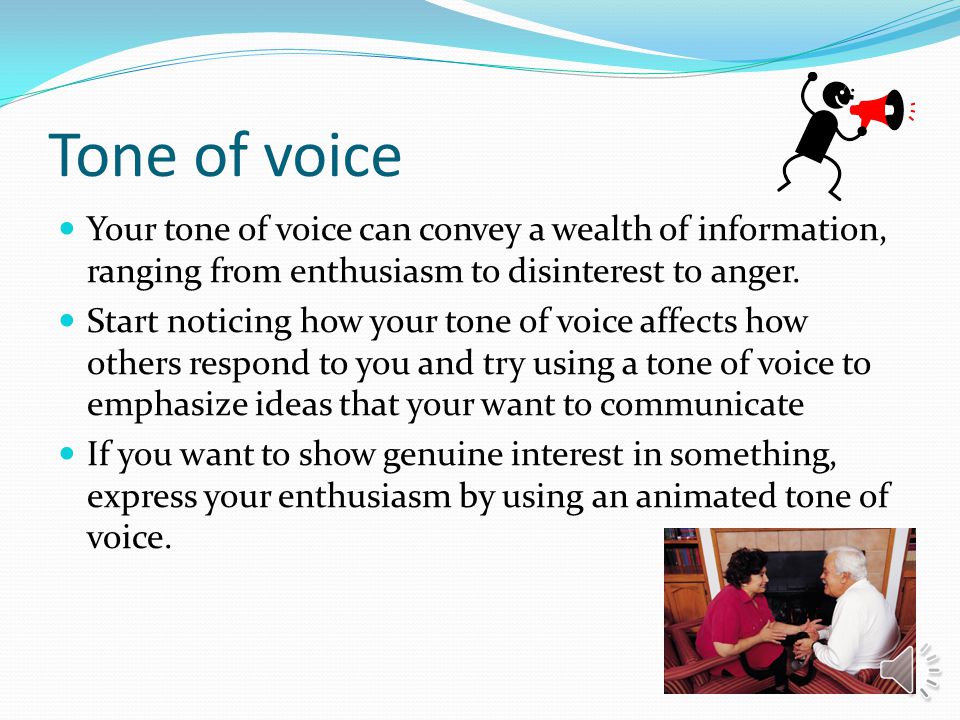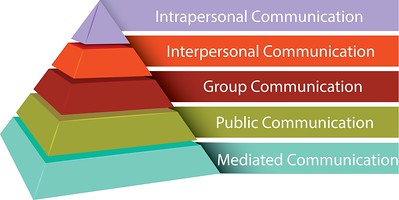How Does Tone of Voice Affect Communication
The tone of voice significantly impacts communication, influencing the message’s perceived meaning and emotions. It sets the overall mood and can convey confidence, empathy, or authority, shaping how the message is received and understood.
Effective communication relies on using a tone that aligns with the intended message to enhance clarity and connection. People respond differently to various tones, making it crucial to consider how tone can contribute to effective communication in various contexts. In both verbal and written communication, the tone of voice plays a crucial role in conveying the desired message and fostering meaningful interactions.
Understanding the impact of tone on communication can lead to more effective and impactful exchanges.
The Importance Of Tone Of Voice
Have you ever been told, “It’s not what you say, but how you say it”? This age-old adage succinctly describes the significance of tone of voice in communication. The manner in which we speak, the inflection, and the emotional undertones all play a crucial role in conveying our intended message. Whether in personal or professional interactions, understanding the impact of tone of voice is paramount for effective communication.
Impact On Communication
Our tone of voice serves as a powerful instrument in our communication repertoire. It can either enhance or hinder the effectiveness of our message. When delivering information with a positive and upbeat tone, it can captivate the listener, evoke interest, and foster a sense of warmth and rapport. Conversely, a negative or harsh tone has the potential to alienate, evoke stress, and sow discord. In essence, our tone significantly influences how our communication is received and interpreted.
Emotional Cues
The importance of tone of voice becomes even more evident when we consider the emotional cues it provides. Often, our emotions are subtly woven into the delivery of our words. A gentle and soothing tone can convey empathy and comfort, while a sharp or forceful tone may indicate frustration or urgency. Recognizing these emotional cues enables us to better understand the nuances of the conversation and respond appropriately, thereby fostering effective and empathetic communication.

Credit: www.soundwave.global
Types Of Tone Of Voice
When it comes to communication, the tone of voice plays a crucial role in how our message is perceived by others. The way we deliver our words can significantly impact the effectiveness and meaning behind what we say. This is why understanding the different types of tone of voice is essential for effective communication. Below, we’ll explore four key types: Assertive, Passive, Aggressive, and Empathetic.
Assertive
An assertive tone of voice is confident, clear, and direct. It shows self-assurance while respecting the opinions and boundaries of others. This type of tone allows us to express our thoughts and ideas effectively while maintaining a respectful and understanding approach.
Passive
A passive tone of voice often lacks assertiveness and confidence. It tends to be meek and submissive, sometimes leading to misinterpretation or assumptions of indecisiveness. Individuals using a passive tone may avoid expressing their needs or opinions, potentially hindering effective communication and leaving room for misunderstandings.
Aggressive
An aggressive tone of voice is forceful and confrontational. It often involves dominating or controlling the conversation, disregarding the opinions and feelings of others. This type of tone can create a hostile environment and hinder open and constructive communication. It is important to note that being assertive is different from being aggressive.
Empathetic
An empathetic tone of voice shows understanding, compassion, and consideration for others’ emotions and experiences. It involves actively listening, acknowledging feelings, and responding in a supportive manner. Using an empathetic tone fosters trust and strengthens relationships, enabling effective communication even in challenging situations.
Nonverbal Elements Of Tone
The nonverbal elements of tone play a crucial role in communication and can significantly impact how a message is perceived. While the words we use are essential, factors such as pitch, volume, and pace also contribute to how our message is received.
Pitch
The pitch of one’s voice refers to how high or low it sounds. A higher pitch can convey excitement or urgency, while a lower pitch can indicate seriousness or authority.
Volume
Volume relates to how loud or soft a person speaks. A higher volume can denote enthusiasm or confidence, whereas a lower volume may imply intimacy or reservation.
Pace
Pace refers to the speed at which someone speaks. A faster pace can portray energy or nervousness, while a slower pace can suggest thoughtfulness or deliberate communication.

Credit: slideplayer.com
Cultural Influence On Tone
When it comes to effective communication, tone of voice plays a crucial role. The cultural influence on tone can significantly impact how messages are perceived and understood. Different cultures have varying communication styles, and understanding these nuances is essential for successful cross-cultural interactions.
Diversity In Communication Styles
Understanding the diverse communication styles across cultures is essential for effective global communication. Different cultures may have varying preferences for direct or indirect communication, reliance on non-verbal cues, or the use of formal and informal language. It’s important for individuals and businesses to adapt their tone of voice to resonate with the communication style of diverse cultures.
Cross-cultural Misinterpretations
Cultural differences in tone of voice can lead to misinterpretations and misunderstandings. For example, a communication style that may be considered polite and respectful in one culture could be perceived as passive or distant in another. These misinterpretations can impede collaboration and hinder the success of international business endeavors. Developing cultural awareness and sensitivity to tone of voice is crucial in minimizing cross-cultural communication barriers.
Improving Tone Of Voice
Improving the tone of voice can significantly impact communication in a positive way. It helps in creating a better understanding, clarity, and connection in conversations. Here’s a deeper look at how certain practices can help in improving the tone of voice:
Active Listening
Active listening is a crucial part of improving the tone of voice. It involves giving complete attention to the speaker and responding appropriately. Maintaining eye contact and providing verbal cues, such as nodding, can show the speaker that you are attentive. Practicing active listening can help in fostering a respectful and open communication environment.
Practicing Empathy
Communicating with empathy can positively impact the tone of voice. Understanding the emotions and perspectives of others can lead to a more compassionate and considerate approach. Using empathetic phrases and acknowledging the feelings of the other person can help in creating a supportive atmosphere for effective communication.

Credit: www.pinterest.com
Frequently Asked Questions On How Does Tone Of Voice Affect Communication
What Is Tone And Why Is It Important?
Tone refers to the attitude or emotion conveyed in written content. It is important because it influences how readers perceive and engage with the information. A positive tone can build trust and credibility, while a negative tone may discourage readers.
Using an appropriate tone can enhance communication and effectively deliver the intended message.
What Are The Negative Effects Of Tone Of Voice?
Negative effects of tone of voice include miscommunication, offending others, creating tension, and damaging relationships.
How Does The Tone Of Your Speech Affect The Audience?
The tone of your speech can influence the audience’s emotions and engagement, shaping their perception of your message.
Why Is The Voice Important In Communication?
The voice is crucial in communication because it conveys emotions, thoughts, and intentions. It helps to establish trust and understanding. A strong and clear voice ensures effective delivery of information and enhances the overall impact of communication.
Conclusion
The way we speak not only carries our message but also sets the tone for how it is received. Tone of voice can significantly impact communication, influencing emotions, perceptions, and outcomes. By wielding our tone effectively, we can foster understanding and connection or inadvertently create misunderstandings and conflicts.
In a world where effective communication is crucial, recognizing and consciously shaping our tone of voice can make a world of difference. So, let’s be mindful and harness the power of our voice to build stronger, more meaningful connections.





